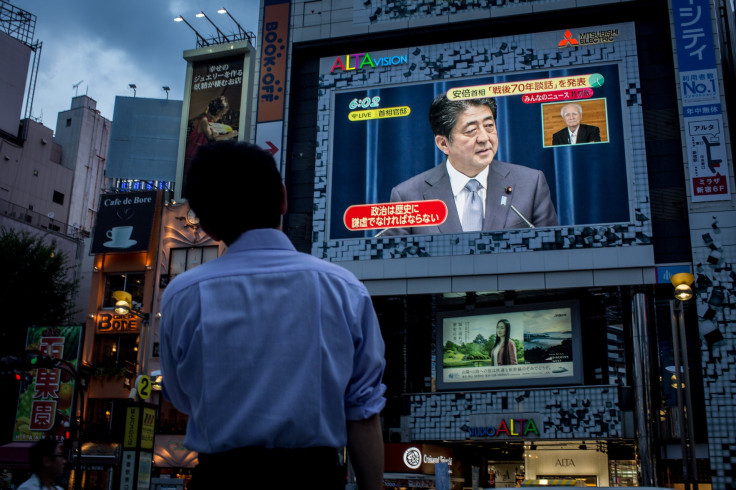Shinzo Abe On WWII: Leader Says Future Generations Should Not 'Be Predestined To Apologize'

Japanese Prime Minister Shinzo Abe on Friday expressed "profound grief" for those who suffered at the hands of the Japanese Imperial Army during World War II, but stopped short of issuing a fresh apology of his own. Abe's speech was closely watched by the country’s neighbors, especially China and South Korea, two countries that bore the brunt of Japan's territorial ambitions.
Abe made the comments in Tokyo, on the seventieth anniversary of Japan’s defeat in the war, and pledged that Japan would "never wage a war again," the BBC reported. Japan’s neighbors harbor deep resentment over the invasion and occupation of their homelands by the Japanese Imperial Army before and during the war, and the atrocities committed by its occupying forces. Japan surrendered on Aug. 15, 1945, only a few days after the United States dropped two atomic bombs on the Japanese cities of Hiroshima and Nagasaki.
"On the 70th anniversary of the end of the war, I bow my head deeply before the souls of all those who perished both at home and abroad. I express my feelings of profound grief and my eternal, sincere condolences," Abe said, according to the Associated Press, adding: "History is harsh. What is done cannot be undone."
Abe added that it was unnecessary for Japan's newer generations to apologize for the actions of previous ones. "We must not let our children, grandchildren and even further generations to come, who have nothing to do with that war, be predestined to apologize for it" Abe said, according to Channel News Asia.
Beijing and Seoul had expected that Abe would follow in the footsteps of his predecessors -- Tomiichi Murayama and Junichiro Koizumi -- who had, in 1995 and 2005 respectively, offered a "heartfelt apology" and expressed "deep remorse" for Japan's "colonial rule and aggression," the BBC reported.
Abe, viewed as a hawkish leader with intentions to revive nationalist sentiments in Japan, was reportedly under pressure within Japan as well to issue an apology for Japan's actions. However, Abe reportedly restricted his remarks to state:
"Japan has repeatedly expressed the feelings of deep remorse and heartfelt apology for its actions during the war," the BBC reported, citing an official translation of his remarks. "Such position articulated by the previous cabinets will remain unshakeable into the future."
© Copyright IBTimes 2024. All rights reserved.





















